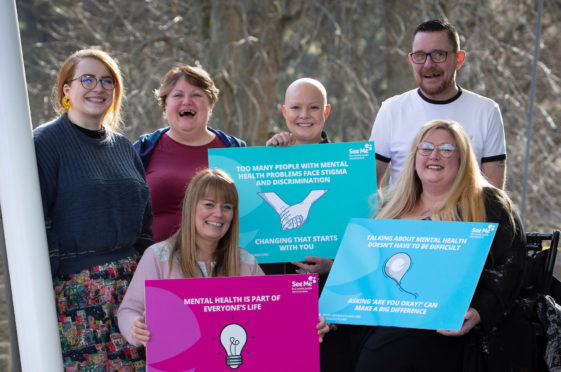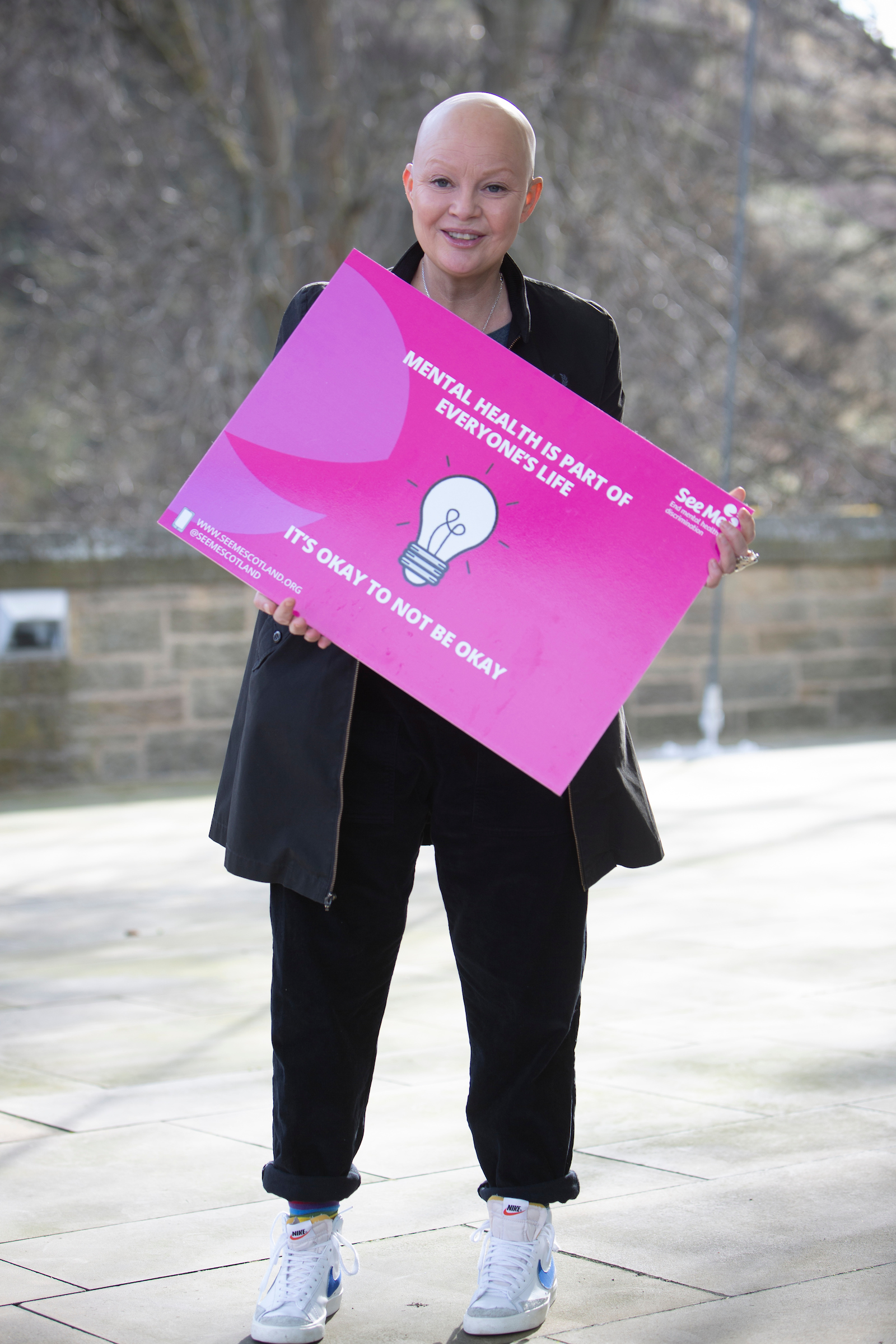
More than half of people who have struggled with their mental health have suffered stigma or discrimination because of it, new research has found.
The study reveals people in Scotland are most likely to experience such treatment from those closest to them, such as friends, family and work colleagues.
However the research suggests there are signs of improvement, with almost eight in 10 (79%) respondents saying they think public perceptions of mental health problems have improved over the past decade.
The poll of 2,005 people was carried out by Censuswide for See Me, the programme to end mental health discrimination, with the findings published on Thursday.
TV presenter Gail Porter, who recently released a documentary about her mental health journey, is urging people to be confident in recognising stigma and discrimination.
She said: “While I was enjoying a successful career on television, I was experiencing serious mental health illness, but at the time there was still a real stigma around the subject so I had to smile and carry on as normal. Hiding it like this just made things worse.
“In those days, the media often labelled people ‘mad’ or similar derogatory terms, there was a stigma and discrimination around mental health that could quickly destroy your career.
“These days, it’s great that mental health is something that is talked about more openly and positively and the stigma has been reduced significantly, but I think there’s a long way to go.”
See Me said that with one in three people in Scotland experiencing mental health problems, and 56% of them facing stigma and discrimination, nearly a million people in Scotland could face being treated unfairly when they are struggling.
More than a quarter (27%) of those surveyed said they would not want a person who has a mental health problem to take care of their child, while one in 10 (11%) would not be willing to have a relationship with someone with a mental health problem.
However 85% said they believe it is possible to have a mental health problem and live a meaningful life, while 55% of people said they feel confident to challenge mental health stigma and discrimination.
The research, carried out in September, also found almost one in four (37%) of those surveyed who have not experienced mental health problems themselves said they have witnessed stigma and discrimination.
Mental Health Minister Clare Haughey said: “It is encouraging that 79% of people who were surveyed think that public perceptions of mental health problems have improved in the last 10 years – and that over half of respondents would feel confident to challenge mental health stigma and discrimination, especially when they have been the recipient of such stigma themselves.
“See Me’s survey also shows some negative findings about fears around mental ill health. These findings are sobering and they reaffirm that despite strong progress in improving public perceptions of mental health problems, there is still much to be done to tackle associated stigma and inequality.”
See Me is releasing a new digital resource, The Journey Of A Social Movement, which is designed to help people see how they can tackle stigma and discrimination.
Wendy Halliday, See Me interim director, said: “Our research shows that 55% of people feel confident to challenge stigma and discrimination, but we need that number to be much higher so no-one is treated unfairly when they’re struggling.”

Enjoy the convenience of having The Sunday Post delivered as a digital ePaper straight to your smartphone, tablet or computer.
Subscribe for only £5.49 a month and enjoy all the benefits of the printed paper as a digital replica.
Subscribe © Marc Turner/PA Wire
© Marc Turner/PA Wire